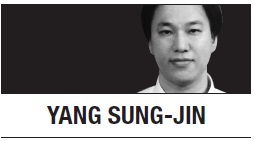Genshin Impact, a free-to-play action role-playing game, is evoking a slew of intriguing questions involving plagiarism in game development and the protection of user data.
Since the Sept. 28 global release, Genshin Impact has quickly gained a sizable user base in South Korea, thanks to its cute anime characters as well as the beautifully rendered backgrounds and intricate battle system.
The game, developed and published by China-based miHoYo, is available on mobile phones, PC and the PlayStation 4 gaming console -- designed to appeal to a wide range of gamers.
On YouTube and Twitch, it’s now easy to find Korean content creators playing the game on PC or PS4, reflecting its popularity. What’s notable is that viewers of Genshin Impact livestreaming often engage in fierce verbal fights about the game’s controversial elements.
Many viewers are quick to produce negative comments in which they downplay the originality of Genshin Impact, claiming it’s a “shameless clone” of Nintendo’s The Legend of Zelda: Breath of the Wild.
Indeed, Genshin Impact’s Teyvat realm is fairly similar to the Hyrule of the Zelda series in terms of visual effects and gameplay mechanisms. Other similarities include gliding, cooking on an open fire and the user interface for item management.
Since I had played the latest Zelda series on Switch for many hours, it didn’t take long for me to notice the apparent similarities. There is no doubt that plagiarism is something that should be avoided at all costs. However, in the field of gaming where copycat software titles abound, it’s difficult to win a court battle against rival firms over allegedly stolen features.
Another tricky issue is that similar features in gaming might be a nod to a well-known masterpiece. In this regard, Genshin Impact’s developers already acknowledged that they were influenced by The Legend of Zelda: Breath of the Wild.
The question is whether Genshin Impact has its own features that can render the obvious similarities with the Nintendo’s masterpiece as an artistic homage. Unfortunately, the copycat issue was sidelined by controversy over the game’s anti-cheating program.
Game developers tend to activate a small monitoring program to prevent illicit cheating that could disrupt overall gameplay. In most cases, it’s a legitimate protection.
As for Genshin Impact, its anti-cheating program touched off a wave of angry backlash because it turned out to be in action even after players switch off the game. Speculation quickly mounted that the anti-cheating program might be used as a “backdoor” to secretly monitor users and steal their personal information.
The backdoor claim spread quickly, especially among some Korean gamers who have had negative experiences regarding alleged Chinese hackers. There are many anecdotes in which Korean gamers lost their game items and personal data to Chinese hackers, though it’s not easy to confirm the identity of such digital fraudsters, who routinely disguise their real locations.
Game streamers playing Genshin Impact complained that too many viewers leave comments about the backdoor issue. One streamer even put out a separate video explaining that the issue shouldn’t be a concern, saying he’s frustrated to see similar backdoor-related comments.
In response to the kerfuffle, miHoYo rushed to explain that its anti-cheating program is simply designed to prevent foul play, but did not clarify why it failed to notify users in advance that the program stays active even after the user’s PC is turned off.
The Chinese developer eventually announced that it would change the program so that it gets turned off when the user switches off the game.
Aside from the backdoor dispute, a closer look at Genshin Impact reveals that the game has solid graphics, particularly anime-like characters and a well-crafted battle system for big monsters. Its cross-platform support is a feature that should be adopted by more game developers.
In all fairness, Genshin Impact is well suited for mainstream gamers, particularly those who enjoy playing role-playing titles on mobile phones. But for those who have played the Zelda series, I recommend that they should keep playing the renowned game. After all, there is a reason that it’s called “Legend.”
By Yang Sung-jin (
insight@heraldcorp.com)
Yang Sung-jin is the multimedia editor of The Korea Herald. -- Ed.







